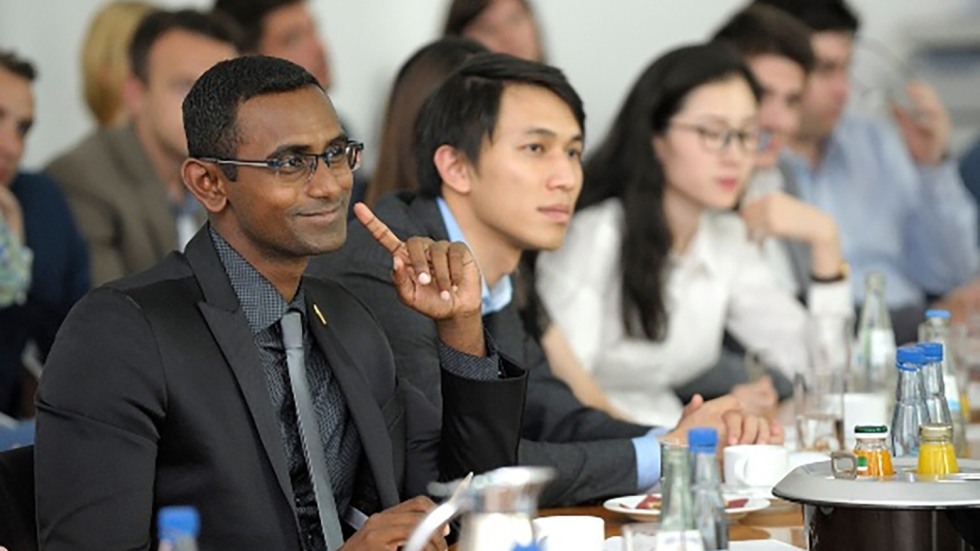Alumni are securing positions in a variety of exciting, change-making organizations, including the Government Accountability Office, Accenture, Booz Allen Hamilton, the Federal Bureau of Investigations, and more. Below, alumni share how they’re putting their MPA degree to work.
Growing up in Caracas, Venezuela, Alfredo Malaret Baldo MPA ’19 witnessed first-hand the suffering and disruption caused by urban violence, and was motivated to find ways to stop it. He then became interested in international development. Today he combines those interests: as a researcher with the Conventional Arms Programme (part of the United Nations Institute for Disarmament Research), he works to reduce violence around the world, from low-capacity environments to highly developed cities.
“In a nutshell,” he says, “our team supports States' efforts aimed at improving local, national, and international security and attaining their development goals.”
To accomplish this, Malaret Baldo works on both policy and practice—which means first getting out to affected communities to study patterns of armed violence and opportunities for improvement, such as combating the threat posed by improvised explosive devices, commonly known as IEDs. For one project, he says, “we researched the situation and found that we offered the most value in creating a practical model to prevent IED events, even if the entire apparatus was built to be reactive.”
Malaret Baldo credits Neil Thakral ’13, Nancy Donohue and Diane Elam Assistant Professor of International and Public Affairs and Economics, with honing his critical thinking and impact-assessment skills. “Neil taught us to ask, How is this intervention going to have an impact? and then map the causal pathway. He gave us a framework to think about real-world problems and complex interactions with outside variables, and how interventions can also have negative effects or no effects,” he says. Learning where a policy went wrong, Malaret Baldo says, is essential to changing it for the better and having a real-world impact improving people's lives.
The ability to interpret data is a valuable skill for Chamika Wanigatunga MPA '19, as well. As a business services coordinator at the World Economic Forum, he takes data-driven insights and turns them into actionable items for the Forum’s partners, which include some of the largest corporations in the world, such as Microsoft, Google, Procter & Gamble, Unilever, and BP. For example, his group organizes sessions showing corporations how they can become more eco-friendly, and even convert to a net-zero enterprise.
Even before working at the Forum, Wanigatunga was applying the Python coding skills he had acquired in one of his MPA classes to his consultancy work at Project Citizenship, where he also learned to use Salesforce. “Having that extra knowledge helped me to really excel here at the Forum,” he says. The GIS course taught by Lecturer Jim Lucht, who specializes in business intelligence, data visualization, and geographic information systems, was especially helpful.
As for Saaima Bholat MPA ’21, it was the courses in policy analysis—“specifically learning the skills of strong memo writing and analyzing case studies to produce actionable and feasible recommendations”—that have had the most impact in her daily work as a program specialist at the U.S. Department of State-Office of Foreign Missions in Los Angeles, where she acts as a liaison between the diplomatic community and the Southwest region of the U.S.
“Writing with brevity and clarity is a skill that the MPA courses allowed me to develop and has proven to be beneficial in effective communication with the diplomatic sector,” she says.
